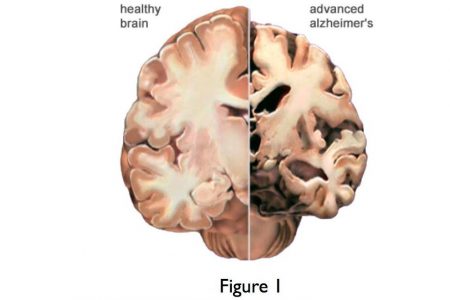The rewarding feeling of saying 'I told you so'
Have you ever experienced a feeling of satisfaction and an impulse to say “I told you so”? In our recently published fMRI study, we demonstrated the rewarding effect of being right, even in the case of a negative outcome like monetary loss.
The rewarding effect of being right
Imagine a situation where you are absolutely sure about something, but this view is not shared by the person you are with. There is a discussion, and you end up agreeing with the other person... Sound familiar? It may bring a lot of frustration, because you do not feel acknowledged by the other person. However, when it turns out you were right after all, an explosion of happiness arises as you are finally able to say “I told you so!”. Before I will share the results from our study, I would like to give you an example of this “I-told-you-so” phenomenon.
The scene: You’re on holiday in Vietnam with your loved one and the two of you are walking back to the hotel after enjoying some nice street food. At some point your loved one wants to go left, fully convinced that this is the quickest route. However, you disagree, as you are almost sure you have to go right. Since you have no internet connection and you don’t want to start an argument, you decide to follow your partner… albeit with some frustration because your feet hurt and the foot bath you crave will be further delayed. At some point your loved one loses direction and you decide to ask someone how to get to the hotel. It turns out that you were right after all. Although your feet hurt insanely, you will probably have a feeling of satisfaction and an impulse to say “I told you so”.
The study
Interestingly, even though the feeling of “I told you so” is so familiar to many people, it had not previously been studied. With this in mind, we developed a social visual search paradigm in which two participants – one of whom was in an fMRI scanner – had to make a joint decision. More specifically, the participant lying in the scanner observed a letter cloud (400-2000 ms), followed by two letters, and received the instruction beforehand that he/she had to advise the co-actor outside the scanner about whether the two letters had been in the previously shown letter cloud or not. Next, the co-actor was instructed to make a joint decision by deciding to either follow or ignore the advice given by the participant lying in the scanner. We motivated participants extrinsically by paying them €0.10 for each correct answer and by taking away €0.10 when they were incorrect. We were of course particularly interested in the situation in which the co-actor ignored the participant’s correct advice, in other words: the “I-told-you-so” situation.
The I-told-you-so effect
Our results showed increased reward-related activation in the striatum following monetary gain as compared to monetary loss, but also for correct advice as compared to incorrect advice. So it feels better to win than to lose, and it feels better to be right than to be wrong. That makes sense, right? However, what about being right and losing money, the “I-told-you-so” situation? It turned out that reward-related neural mechanisms are involved when someone is proved right, even in situations that end in monetary loss. These results indicate the possibility of experiencing several emotions at the same time. In this case, the participants could be proud of their own cognitive abilities (positively valenced), whilst simultaneously experiencing disappointment about the other person not following their advice, which had led to a financial loss (negatively valenced).
The current study does have some limitations: for example, we did not include a non-social control condition in which the computer randomly followed or ignored the advice given by the participant lying in the scanner. Since we expected that the intense “I-told-you-so” feeling would mainly be caused by being right at the expense of another person’s failure, we decided not to include such a condition. However, future studies that do include a social control condition will be needed to confirm this. Until then, just enjoy that rewarding boost to your self-esteem when you prove your cognitive and/or social abilities by being right.





